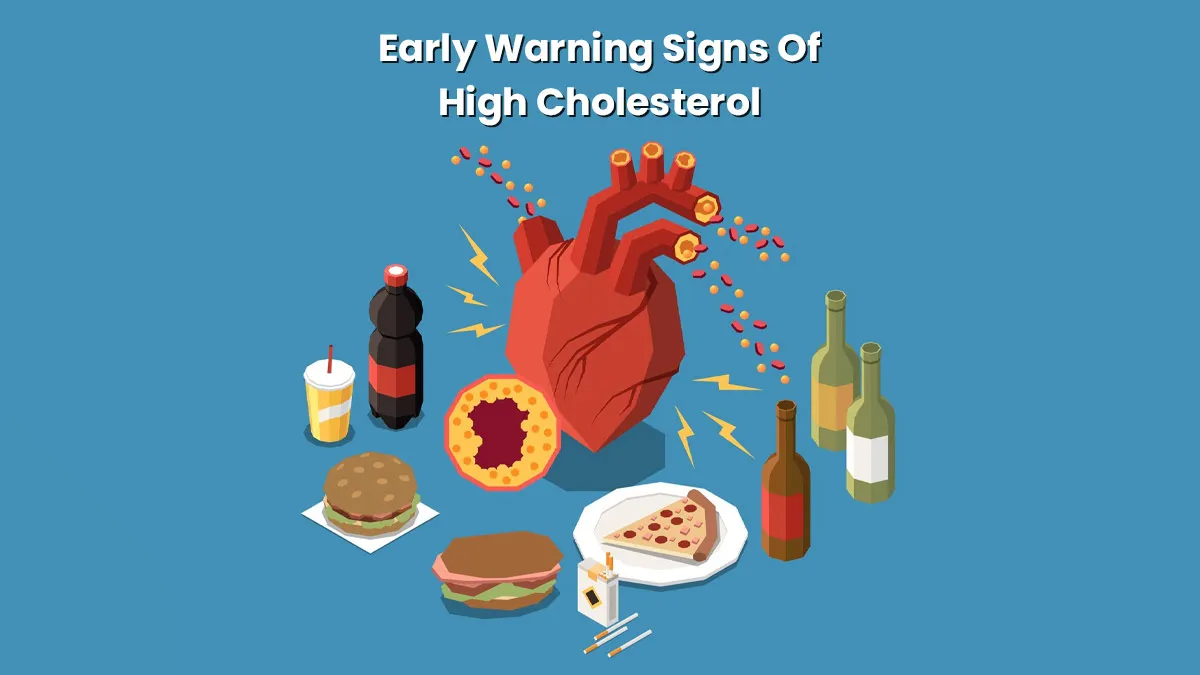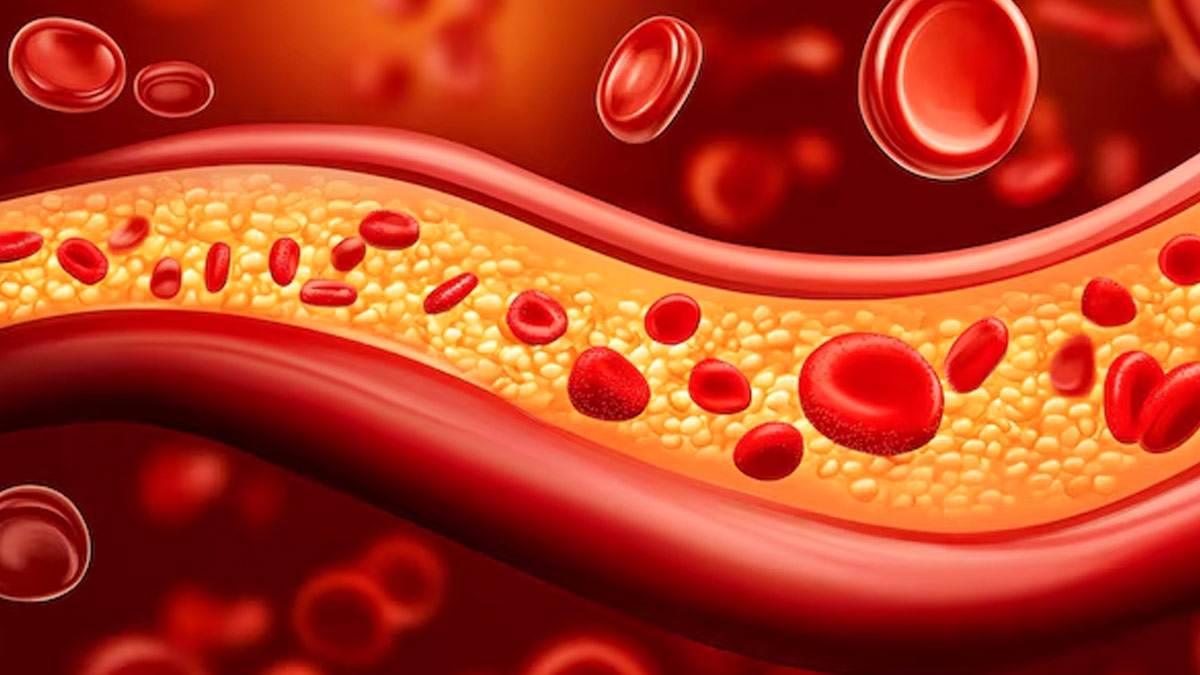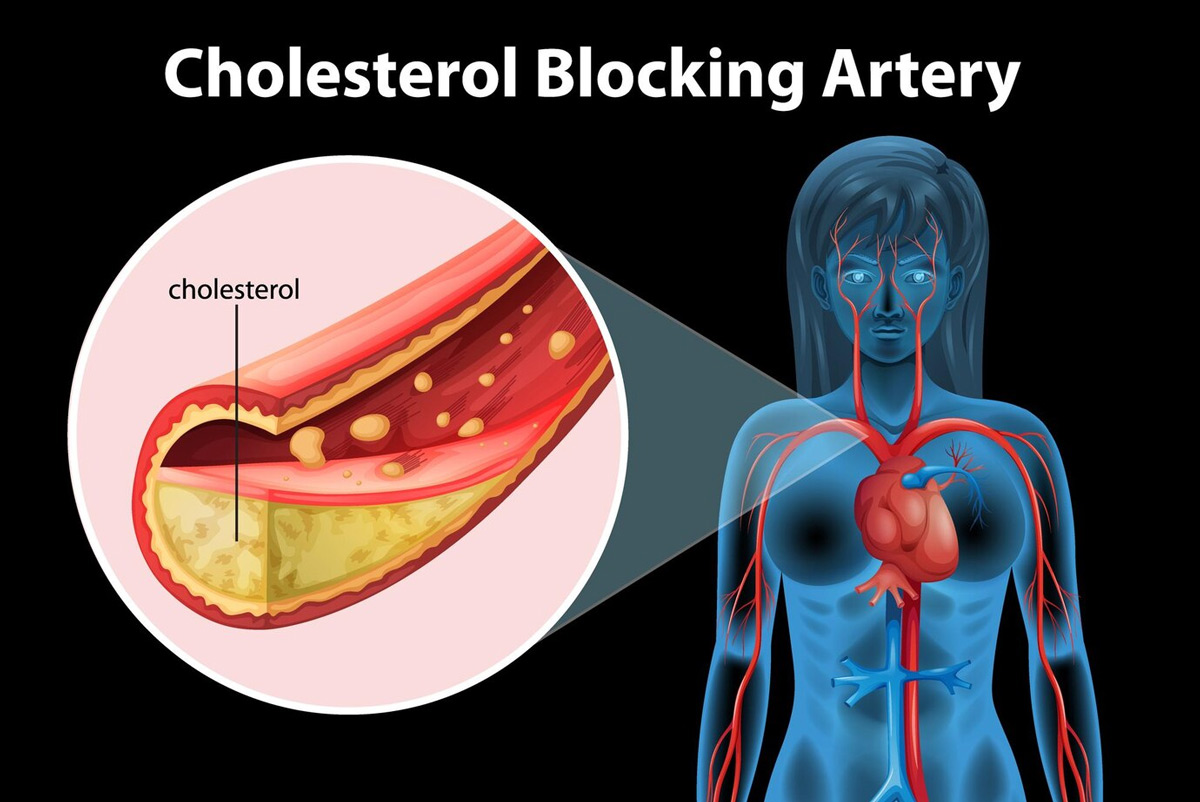
High cholesterol often shows no symptoms until it’s too late but your body may be sending subtle warning signs. High cholesterol levels are closely linked to several serious health conditions, including coronary artery disease. To better understand the early signs and health risks, we spoke to Dr Sridevi Chigullapalli, Consultant Cardiologist at DPU Super Specialty Hospital, Pimpri, Pune, who shared expert insights on what to watch out for.
High cholesterol, medically known as hyperlipidaemia or hypercholesterolaemia, happens when there's too much fat (lipids) in your blood. While your body needs some cholesterol to function properly, excess levels can build up in the arteries. Over time, this fatty buildup called plaque can clog your arteries and restrict blood flow.
Since high cholesterol usually has no symptoms in the early stages, it often goes unnoticed until it causes serious heart-related conditions like coronary artery disease or heart attacks. That’s why managing cholesterol levels is essential for protecting your heart health.
High cholesterol is often called a ‘silent threat’ because it doesn’t cause obvious symptoms in the early stages. Many people only learn about their cholesterol levels after a routine blood test. However, there are a few subtle signs your body may show that shouldn’t be overlooked.
As per Dr Chigullapalli, here are 7 potential warning signs of high cholesterol:
Also watch this video
Don't Miss: Top 7 Early Signs of High Blood Pressure in Women You Shouldn't Just Ignore

According to Dr Chigullapalli, while these signs are not conclusive, they are worth paying attention to. "Detecting cholesterol imbalance early through a simple blood test can prevent complications like heart disease or stroke," she says.
Both your genes and daily habits influence your cholesterol levels. Here are some key lifestyle-related causes of high cholesterol:
1) Smoking or tobacco use: Smoking lowers HDL (good cholesterol) and increases LDL (bad cholesterol), making it easier for plaque to build up in your arteries.
2) Chronic stress: Ongoing stress can lead to hormonal imbalances, which may cause your body to produce more cholesterol than needed.
3) Excessive alcohol intake: Drinking too much alcohol can raise your total cholesterol, especially triglycerides.

4) Lack of physical activity: Not getting enough movement, whether due to a job or inactive lifestyle, can reduce your HDL levels and increase overall cholesterol.
5) Unhealthy diet: Consuming foods high in saturated fats, trans fats, or refined sugar can significantly raise bad cholesterol. Healthcare providers often recommend dietary changes or seeing a nutritionist to help manage cholesterol through food.
Don't Miss: 6 Oral Symptoms That May Be Warning Signs of Heart Disease
Understanding and addressing these triggers can be a key step toward maintaining a healthy heart and avoiding long-term complications.
Keep reading Herzindagi for more such stories.
Credits: Freepik
Our aim is to provide accurate, safe and expert verified information through our articles and social media handles. The remedies, advice and tips mentioned here are for general information only. Please consult your expert before trying any kind of health, beauty, life hacks or astrology related tips. For any feedback or complaint, contact us at compliant_gro@jagrannewmedia.com.